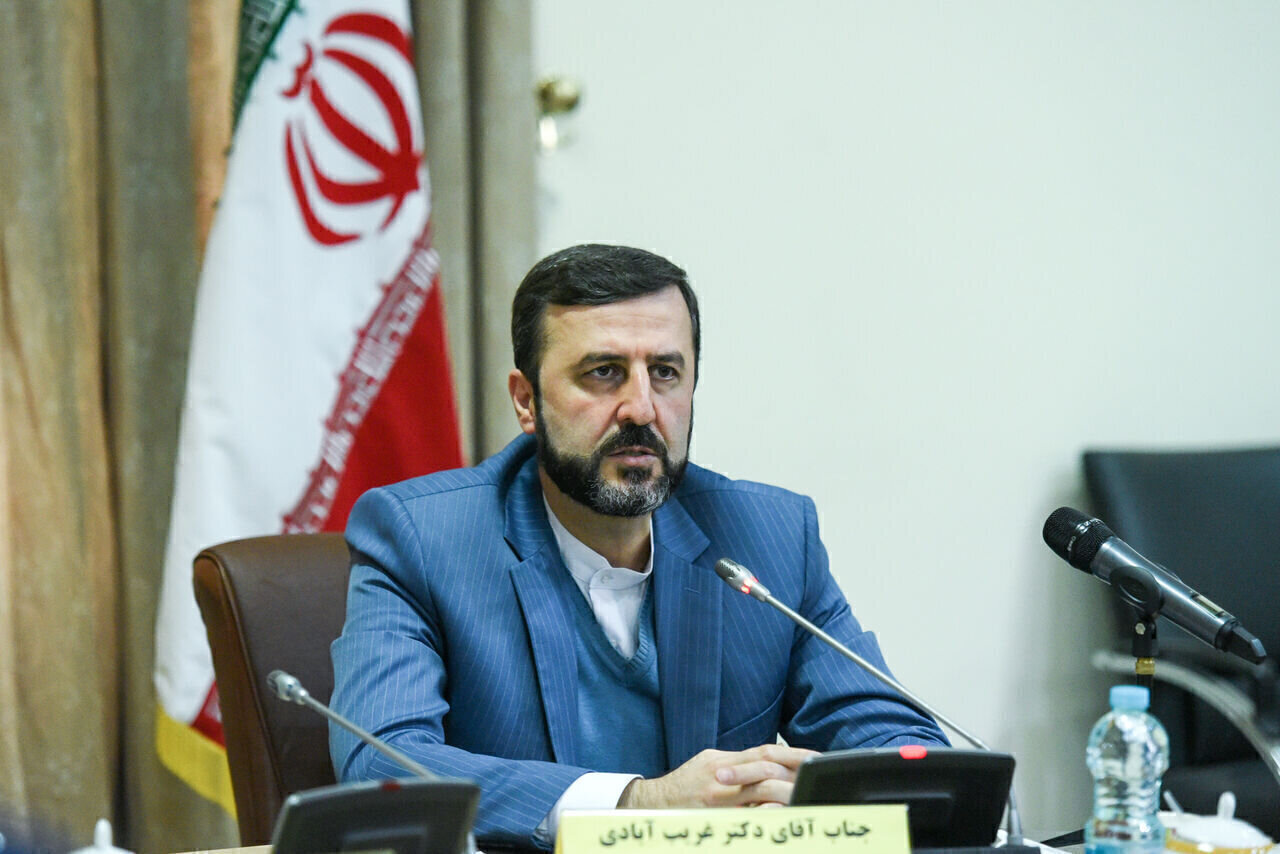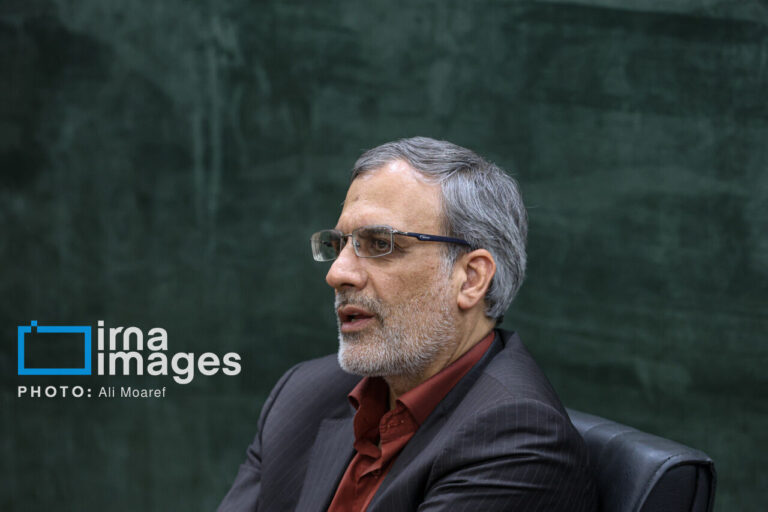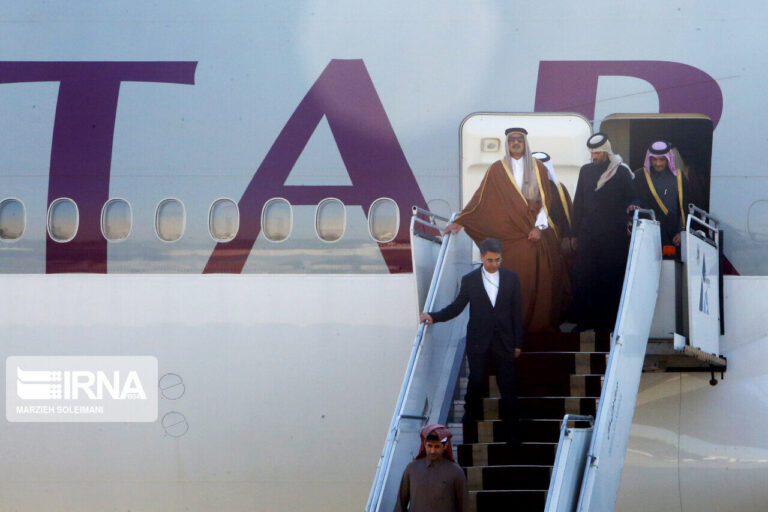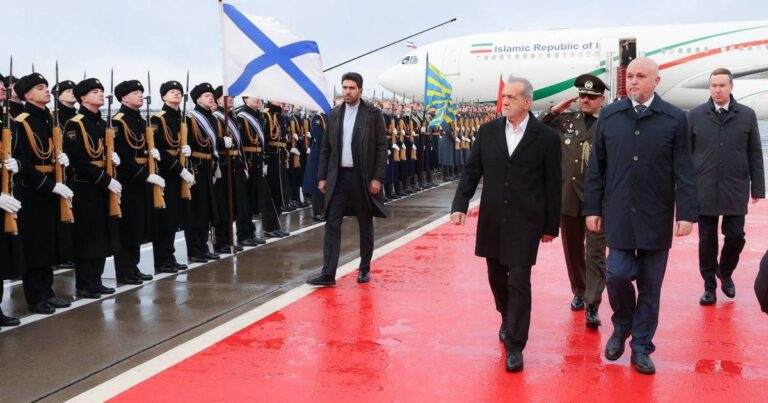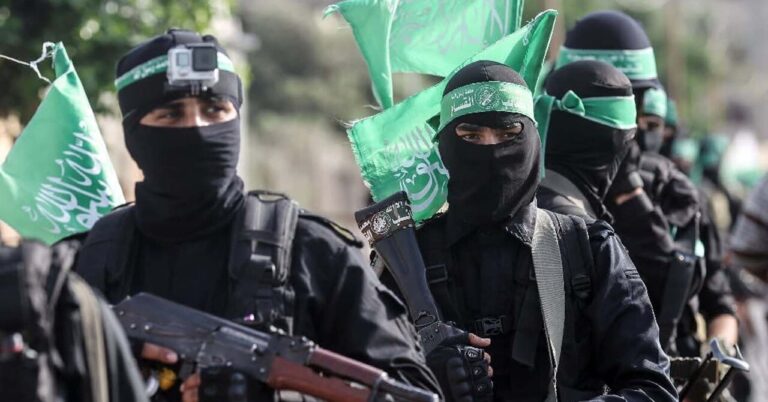Iran Set to Engage in Key Talks with European Troika in Upcoming Weeks
In recent discussions centered on Iran’s diplomatic efforts, Kazem Gharibabadi, Iran’s deputy foreign minister for legal and international affairs, emphasized the potential for renewed talks with the European troika in the coming weeks. These discussions are crucial as they encompass significant matters, including the lifting of sanctions and the ongoing nuclear negotiations.
On Tuesday, Gharibabadi highlighted that this round of talks is expected to take place within the next three weeks. He referred to the latest discussions with the political directors of the three European countries, noting that they are a continuation of previous meetings held in Geneva and New York. According to PressTV, Gharibabadi stated:
“We agreed to continue our contacts. The issue is of importance, covering the lifting of sanctions as well as the nuclear issue and the expectations of both sides.”
He further elaborated on the position set by the Leader of the Islamic Revolution, Ayatollah Seyyed Ali Khamenei, regarding negotiations with the United States. Gharibabadi mentioned:
“After Leader of the Islamic Revolution Ayatollah Seyyed Ali Khamenei announced the principled policy regarding negotiations with the United States, this has become a policy and a line that we must all follow. Naturally, the Islamic Republic of Iran has always rejected negotiations under sanctions and pressure, and this time as well, this stance must be pursued with strength.”
Reflecting on statements made on February 7, Khamenei rejected the idea of engaging in talks with Washington, citing that prior negotiations had not resolved Iran’s issues. However, Gharibabadi emphasized the importance of dialogue with other nations, particularly European countries. He noted:
“Of course, this does not mean that we will not have dialogues with other countries, including the Europeans. Therefore, on the sidelines of [Iranian Foreign Minister Abbas] Araghchi’s trip to Geneva to attend the Disarmament Conference and the Human Rights Council, I held a meeting with the political directors of the three countries.”
Gharibabadi mentioned that both parties agreed to further discussions at a more technical and specialized level, likely reconvening in three weeks, while experts continue evaluations and dialogues. He stated:
“The second point is that all four parties emphasized the need to pursue a negotiated solution for these issues of mutual interest and to reach agreements and outcomes in this regard.”
He underscored that the negotiations should not be solely dictated by the demands of any party disrupting the talks. Gharibabadi further expressed:
“We should not tie all topics to the demands of a party that has consistently been disrupting the negotiations.”
The senior diplomat reiterated Iran’s commitment to its diplomatic efforts, stating that the Ministry of Foreign Affairs is responsible for exploring various solutions within the framework of the Islamic Republic’s principled policies. He asserted:
“However, our efforts are not solely limited to negotiations with the European parties; we are also pursuing other initiatives.”
Gharibabadi emphasized that Iran does not align its policies with those of other nations. Instead, the focus remains on national interests. He remarked:
“We do not link our policies to the positions of other countries; we pursue our own interests. If Tehran feels there is an opportunity in relation to any country or group of countries, it would naturally plan accordingly and follow its own interests.”
He further clarified that discussions with any nation or group of nations are primarily based on the national interests and security of the Islamic Republic of Iran. Gharibabadi stated:
“Within this framework, if more opportunities and capacities arise, we will certainly take advantage of them.”
Notably, in 2015, Iran affirmed the peaceful nature of its nuclear program by signing the Joint Comprehensive Plan of Action (JCPOA) with six world powers. However, the unilateral withdrawal of the United States in 2018, along with the re-imposition of sanctions against Tehran, has left the future of the deal uncertain.
In response to the failure of other parties to fulfill their commitments, Iran began to scale back the limits it had agreed upon under the JCPOA in 2019. Gharibabadi stressed the importance of not solely relying on the dynamics between Europe and the United States, asserting:
“We do not put all our expectations and hopes into the basket of a potential rift between Europe and the United States. We always plan for worst-case scenarios.”
The Islamic Republic has consistently reiterated its stance of not being the party to exit negotiations, expressing readiness to respond positively to constructive steps from the opposing side. Gharibabadi concluded:
“The Islamic Republic has repeatedly stressed that it has never functioned as the side to leave negotiations while declaring it would respond positively to any potential positive steps by the counterparty.”
In summary, the Iranian government remains committed to pursuing diplomatic dialogues with European nations while adhering to its principled policies. The upcoming meetings and continued discussions illustrate Iran’s willingness to engage in negotiations that align with its national interests.
